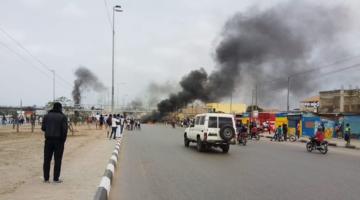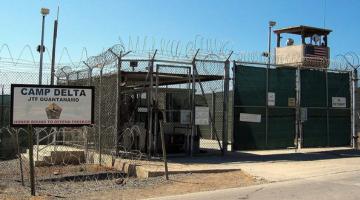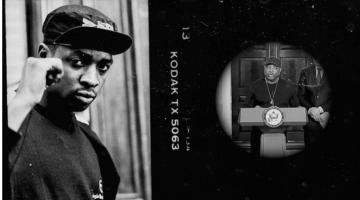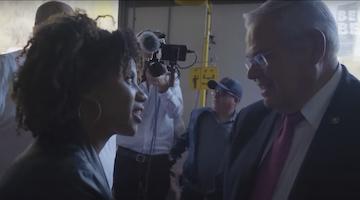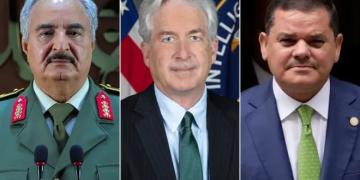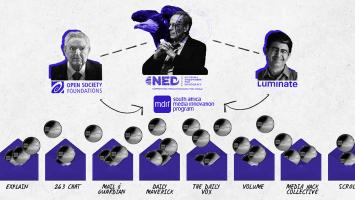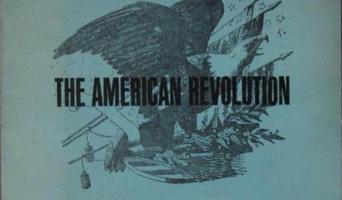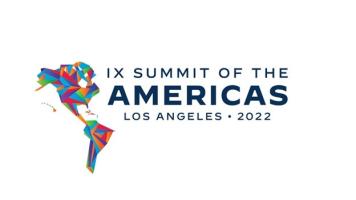A declassified CIA document outlining their strategies for covert action in Angola in the 1970s offers lessons for the present.
It is sometimes said that the first casualty of war is truth. As with any aphorism, this is only partly correct. For truth is not merely collateral damage in conflict, it is the site of conflict itself. To prepare for war is to prepare for a battle over information. Take, for instance, the United States interventions in southern Africa in the 1970s. The US had already provided military support to Portugal, its NATO ally, in an attempt to halt the inevitable process of Angolan decolonization. After Angola gained independence in 1975, the US exacerbated an already tense civil conflict by beginning covert military operations to undermine the left-wing Movimento Popular de Libertação de Angola, or MPLA. The CIA funneled cash and arms and provided logistical support to UNITA (National Union for the Total Independence of Angola) and to Roberto Holden’s FNLA (National Front for the Liberation of Angola).
In response, Cuba came to the aid of the MPLA, helping them to tilt the balance of power away from Angola’s US proxies, and their South African allies. Recognizing they were losing the conflict on the ground and in the public sphere, the CIA initiated a massive anti-Communist disinformation campaign meant to discredit the Cubans. They recruited journalists at international news services who planted fabricated reports about the presence of Soviet advisors in Angola and about the capture of Russian and Cuban soldiers. They made up a story that Cuban soldiers were raping Angola women, and circulated photos allegedly showing the women executing the Cubans after they had been captured and tried. Such stories appeared in the New York Times, Washington Post, The Guardian, and other major papers, often with little in the way of either attribution or critical scrutiny. As historian William Blum has argued, they served to affirm the belief of a public already besotten by anti-Communism and an uncritical belief in the goodly powers of the West.
By 1976, the US Congress restrained the CIA’s ability to engage in foreign paramilitary adventures. The CIA continued with the covert propaganda war under the new constraints. In Angola, this meant supporting a comprehensive disinformation campaign against the Cubans. Some of the strategies and tactics of this campaign were outlined in a 1977 memorandum from CIA director Stansfield Turner to Zbigniew Brzeziński, President Carter’s National Security Advisor. The memo, reproduced below, appears in the declassified volumes of the National Archives compendium Foreign Relations of the United States as “Document 16.” Turner suggested that the CIA use its “controlled media assets and influence agents” to place false but damaging stories about the Cubans in both the international and the African press. He also proposed providing Andrew Young, the Black US ambassador to the United Nations, with a script that he could use to help turn Africa and Latin America against Cuba.
In short, the Cuban-Angolan case demonstrates that the CIA has long recognized that war is a battle over truth and that the media is one of its greatest military assets. It is a lesson we should not forget in the present.
Document 16. Memorandum From Director of Central Intelligence Turner to the President’s Assistant for National Security Affairs (Brzezinski),
Washington, November 11, 1977
SUBJECT
Action Exploitation of Cuban Involvement in Angola
1. The purpose of this memorandum is to provide you with a preliminary status report on actions being taken by the Central Intelligence Agency to commence a covert action campaign abroad on the issue of Cuban involvement in Angola.
2. Pursuant to our discussion with the President on 8 November 1977, I am forwarding, as an attachment to this memorandum, a background paper for Ambassador Young’s use in preparing a speech on this subject. We have included in this paper a number of themes on issues stemming from the presence of Cuban armed forces in Angola along with supporting factual information derived from our intelligence reporting. This approach will allow Ambassador [Andrew] Young to pitch his speech or other public comments to an African, Latin American or internal Cuban audience, as he desires. If, after Ambassador Young reviews this paper, he requires additional information or other assistance on his speech, we, of course, stand ready to render all possible help.
3. Following the President’s formal authorization of this effort on 8 November 1977, we immediately notified the Hughes/Ryan committees of the Congress that a new covert action finding had been made, and that we are ready to brief the committees at their convenience on the nature and scope of these operations. A schedule for these briefings is being arranged commencing early next week.
4. Along general lines it might be helpful if I first provide you with some conceptual comments on our approach to the implementation of the covert action aspects of this proposal. First of all, although there have been a few sketchy reports in the press about some of the problems resulting from the presence of Cuban troops in Angola, this is not now a prominent issue in the international press. For the purpose of credibility and to protect the security of our covert action assets we need a pretext for this effort. However, as you know, the anniversary of Angola’s independence from Portugal is 11 November. Therefore the appearance of press and editorial comments on this issue at this time will not appear unusual. We also need to get the story out in the open so that our controlled assets can use it. For this purpose we are arranging to place a major feature story drawing on our intelligence in a prestigious [redacted] daily. We will also try to arrange through [redacted] pick up this story for replay into Africa and other areas. [redacted] At this point our controlled media assets and influence agents can also draw on this placement for press stories, local editorial comments, and to encourage political or psychological action within their governments or organizations. The text of this story has been prepared and was cabled to [redacted] on the evening of 8 November 1977 along with guidance and implementing instructions. We expect to know shortly when the story will be placed and in what outlet.
5. Along more specific lines, also on the evening of 8 November a preliminary guidance cable was sent [redacted]. This cable stressed the urgency and importance of this covert action assignment, outlined the intelligence facts relating to this effort, articulated the covert action theme lines, provided general operational and tasking guidance and solicited suggestions for actions beyond routine media placements. For the latter purpose, we are also sending out today a cable to these stations and bases providing a summary of press items that have appeared spontaneously recently that coincide with our covert action theme lines. This will enable our media assets to commence replay of editorial comment now as we await the surfacing of our major feature story in [redacted].
6. As a result of the preliminary guidance cable, a number of our stations have already forwarded some suggestions, for example:
a. [redacted] notes that Peking domestic broadcast service is hitting the issue of “the Angolan people oppose the Soviet mercenaries.” Selective replay of this material where Chinese opinion holds some weight may prove useful.
b. [redacted] reports that it will be difficult to get a handle on this proposal in [redacted] because of the strong support that government has given to the Cuban presence in Angola. [redacted] notes that the government might be susceptible to approaches by influential Africans reporting on the problems that Cuban troops are causing the Angolan people and we are looking into this possibility.
c. [redacted] has asked for and we are cabling an intelligence brief on this subject for use by a well placed local agent of influence.
d. [redacted] reports that it will pass the guidance and supporting materials to local press assets.
e. [redacted] asked for and is being provided with a tailored story for placement in a leading [redacted] weekly.
f. [redacted] have indicated they can possibly place appropriate materials in the local press and have asked for background materials which are being provided.
g. [redacted] all report that they are ready to undertake appropriate local press exploitation as soon as they have a suitable international press item for attribution. The [redacted] story will serve this purpose.
h. [redacted] reports that it is moving to task several local media assets on this requirement.
i. [redacted] reports that it will utilize a number of local media assets and has suggested that an influential local contact be encouraged to invite journalists from key foreign countries to UNITA-held territory in Angola to collect first-hand stories about Cuban actions. We are considering the advisability of the latter suggestion.
7. The foregoing information is intended to provide you with some of our initial thoughts on and early field reactions to this proposal. I will be providing you with regular status reports as this campaign proceeds.
Stansfield Turner
Source: Document 16. Memorandum From Director of Central Intelligence Turner to the President’s Assistant for National Security Affairs (Brzezinski), Washington, November 11, 1977, National Security Council, Carter Administration Intelligence Files, Subject Files A–E, Box 25, Angola 11 July 1977–18 April 1978. Secret. Published in Foreign Relations of the United States, 1977-1980, Volume XVI, Southern Africa (Washington, DC: United States Government PRinting Office, 2016).

